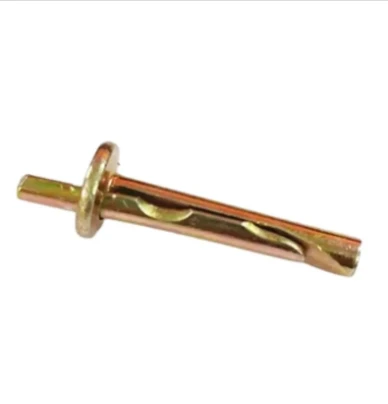नवम्बर . 30, 2024 04:44 Back to list
adjustable screw
The Versatile World of Adjustable Screws
In the realm of machinery, engineering, and everyday hardware, adjustable screws play a pivotal role in ensuring flexibility, precision, and reliability. These screws, characterized by their ability to be tightened or loosened to achieve the desired tension or fit, are essential in various applications, from intricate machinery to simple household items. This article delves into the functionality, applications, and advantages of adjustable screws, highlighting their significance in modern technology.
What is an Adjustable Screw?
An adjustable screw is a type of fastener designed with a mechanism that allows the user to modify its length or position easily. Unlike standard screws, which have fixed lengths, adjustable screws can accommodate various requirements by adjusting their tightness or extending their length. This functionality is often achieved through a variety of designs, such as thumb screws, set screws, or specialty fasteners, each serving its unique purpose.
Applications of Adjustable Screws
Adjustable screws are integral in many industries and applications
1. Machinery and Equipment In industrial settings, adjustable screws are vital for machinery assembly and maintenance. They enable technicians to calibrate equipment precisely, ensuring optimal performance and longevity. For instance, they are commonly used in conveyor systems, allowing for adjustments in the alignment of components as wear occurs.
2. Furniture Manufacturing In furniture assembly, adjustable screws make it possible to create flexible designs that can be assembled and disassembled with ease. Items like beds, shelves, and tables often utilize adjustable screws to allow users to customize height, stability, and fit, catering to individual preferences.
3. Electronic Devices In the electronics sector, where micro-engineering is fundamental, adjustable screws are used in devices ranging from laptops to mobile phones. They are crucial in securing components while allowing for future upgrades or repairs without damaging the device.
4. Construction Construction projects frequently employ adjustable screws in various applications, from assembling scaffolding to securing fixtures. Their versatility makes them invaluable, as they can adapt to different materials and load requirements.
adjustable screw

5. Automotive Industry In automotive engineering, adjustable screws are used for aligning parts, securing components, and enabling easy repairs. They help ensure that various car systems work together seamlessly, contributing to the vehicle's overall safety and functionality.
Advantages of Adjustable Screws
The utility of adjustable screws stems from their numerous advantages
- Customization The primary benefit of adjustable screws is their ability to provide a tailored fit, making them ideal for situations where standard fasteners would be inadequate. This adaptability is crucial in industries where precision is paramount.
- Ease of Use Adjustable screws can be manipulated with simple tools or even by hand, allowing for quick adjustments and repairs. This ease of use is particularly advantageous in maintenance scenarios, where time is often of the essence.
- Cost-Effectiveness By allowing for adjustments, these screws can reduce the need for multiple sizes of fasteners, streamlining inventory and saving costs for manufacturers and repair technicians.
- Durability Many adjustable screws are designed to withstand significant wear and tear, making them a long-lasting option in high-stress environments. Their ability to adjust also means they can maintain their function over time, even as surrounding components experience changes.
Conclusion
Adjustable screws exemplify innovation in fastener design, catering to diverse needs across industries. Their ability to adapt to various applications showcases the evolution of fasteners from simple tools to sophisticated components integral to modern technology. As industries continue to evolve, the importance of adjustable screws is likely to increase, highlighting their role in enhancing functionality, efficiency, and customization. With ongoing advancements in materials and design, the future of adjustable screws promises to be bright, paving the way for even more versatile applications in the world of engineering and beyond.
-
The Ubiquitous Reach of DIN934 in Application Realms
NewsMay.16,2025
-
Exploring Different Bolt Types
NewsMay.16,2025
-
Cracking the Code of Sleeve Anchor Mastery
NewsMay.16,2025
-
Clamp Design Principles,Types and Innovations
NewsMay.16,2025
-
Artistry Inspired by the Humble Anchor Bolt
NewsMay.16,2025
-
A Deep Dive into Screw Types
NewsMay.16,2025


